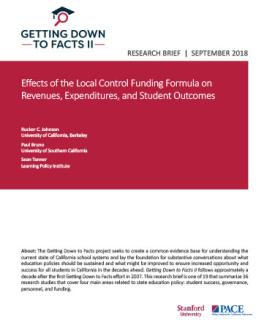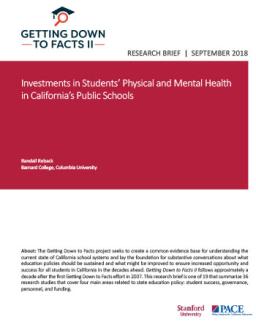Summary
California's Local Control Funding Formula (LCFF) has increased per-pupil revenues, especially for low-income districts, and provided more flexibility in expenditures, leading to improvements in student outcomes. The funding was distributed based on the proportion of disadvantaged students, and expenditure increases were primarily allocated to teachers, pensions, and special education. The policy was implemented during a time of increased K-12 funding after the Great Recession and existing revenue distribution patterns.
Summary
Children's health, especially in low-income households, affects their future success. California has improved access to healthcare but still has gaps due to poor quality care and lack of access to providers. Mental health is a growing concern, but the state has fewer services in schools than other states. The brief explores the benefits of school-based health services, which are currently lacking in California, and estimates it would cost less than $100 per pupil to improve access. California is missing out on federal funds due to its low spending on Medicaid for school-based health services.

